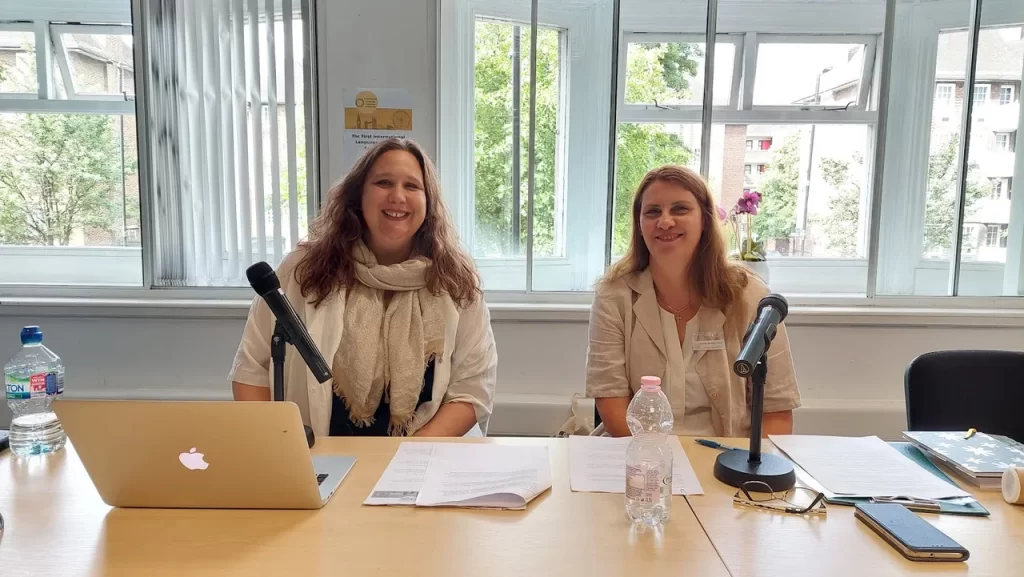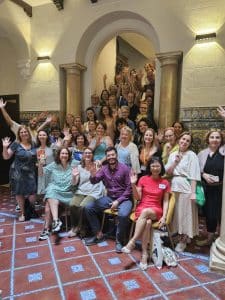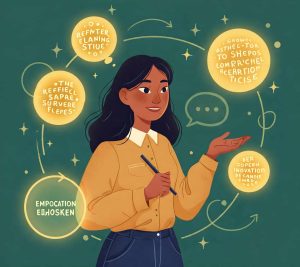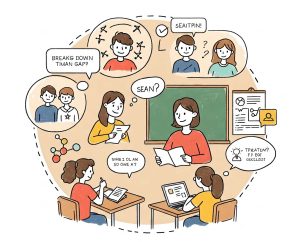Looking back, it was a professional dream come true.
The initial goal was to create an event that supports those interested in deepening their knowledge of language coaching, and we surpassed this goal!
The entire tone was set on the evening before the conference when the ILCA board members finally met each other in person, after working together and collaborating on ILCA projects across continents for over 2 years.This dinner was a striking reminder that meeting in person has its own kind of magic and we truly felt that although we’d become friendly colleagues online we appreciate each others’ efforts so much more now that we have met face-to-face. The smiles and hugs and shock of seeing everyone’s faces, not on a computer screen but standing right in front of us, was truly magnificent.
The next day, the big moment had finally arrived and the conference that we had been dreaming of for so long, had finally come to pass. Among the attendees were teachers, trainers and language coaches arriving from many different countries and nations including, Japan, the USA, Canada, France, Germany, Italy and many more. All in attendance had a strong intention to understand where they stand with language coaching and to evaluate not only where they are now, but their long-term orientation, in order to be more firmly grounded and to communicate better to the environment and learners about the work they do. The creativity, positive energies and instant bonding between attendees and presenters were running on high! It was a true meeting of minds and hearts.
We chose this special conference ILCA conference to double as a book launch for A Comprehensive Language Coaching Handbook (2022) published by Pavilion Publishing and Media, with the author, ILCA co-founder, Gabriella Kovács PCC, MA discussing her book in the larger context of language coaching as an emerging discipline, thus introducing the start of a new era in language coaching.
As organizers and hosts we are very grateful to the speakers for their commitment and the outstanding quality of the talks delivered and workshops held. It is probably not a far-fetched statement to say that everyone took home more than they had bargained for and more than they had expected. We know that we certainly did.
Some of the ideas that stuck were more in the form of questions which resonated deeply and hopefully impacted those attending also:
Who are you teaching: a subject or people? (Ruth Hughes)
What are your assumptions on how time should be used? (Lesley Hossner)
What needs to happen for 80% of our thoughts to move from negative to positive regarding our learning? (Sam Moinet)
How do your cultural preferences impact your work as a language coach? (Ian King)
How can you move language learning outside of the class room to truly unlock learner engagement? (Anesh Daya)
What are you doing to actively engage with language learners (Vicki Plant)
After the introductory plenary by Carrie McKinnon and a short plenary by Gabriella Kovács, it was time for the networking event where we followed a rapid dating scenario accompanied by laughs, insights and a good deal of email address exchanges. We realized there is so much more that we have in common than what makes us different – and it really did give you that warm, funny, fuzzy feeling inside.
Following the networking, attendees settled down to listen to a professional panel of highly accomplished language practitioners (Gabriella Ferenczi, Judy Thompson, Julie Yoder) share their thoughts and extensive experience on the financial aspects of language coaching. Luckily it was not merely listening on the part of attendees, but active questioning from the audience to the panel, leading to discussion on some of the following points:
Niching and how it may serve our clients and us the best
Whether working for free really helps you and your clients to achieve goals
Why going local vs global is your first best step into recognition
Do you need a certificate or are the skills sets suffice for clients
How to receive recommendations, testimonials without the hassle
What algorithms can help you gain
Should you support only language learners that are learning the language/s you teach
Who do you most enjoy working with and how to tap into those energies again
For many of us, to be quite honest, the worst thing was the fact that we were unable to attend all the workshops as they were running parallel to each other in the afternoon!
Based on the feedback that we received we are excited and look forward to hosting the second International Language Coaching Conference in Europe in 2023 (location to be announced soon). Hope you’ll join us!






